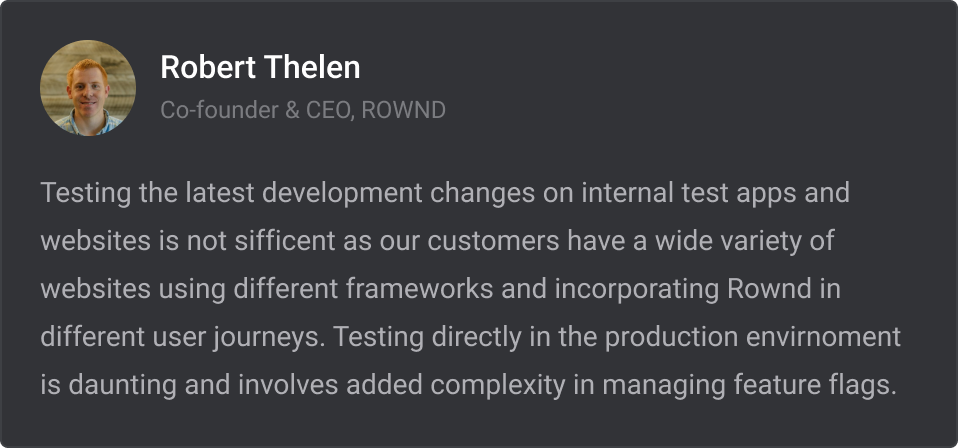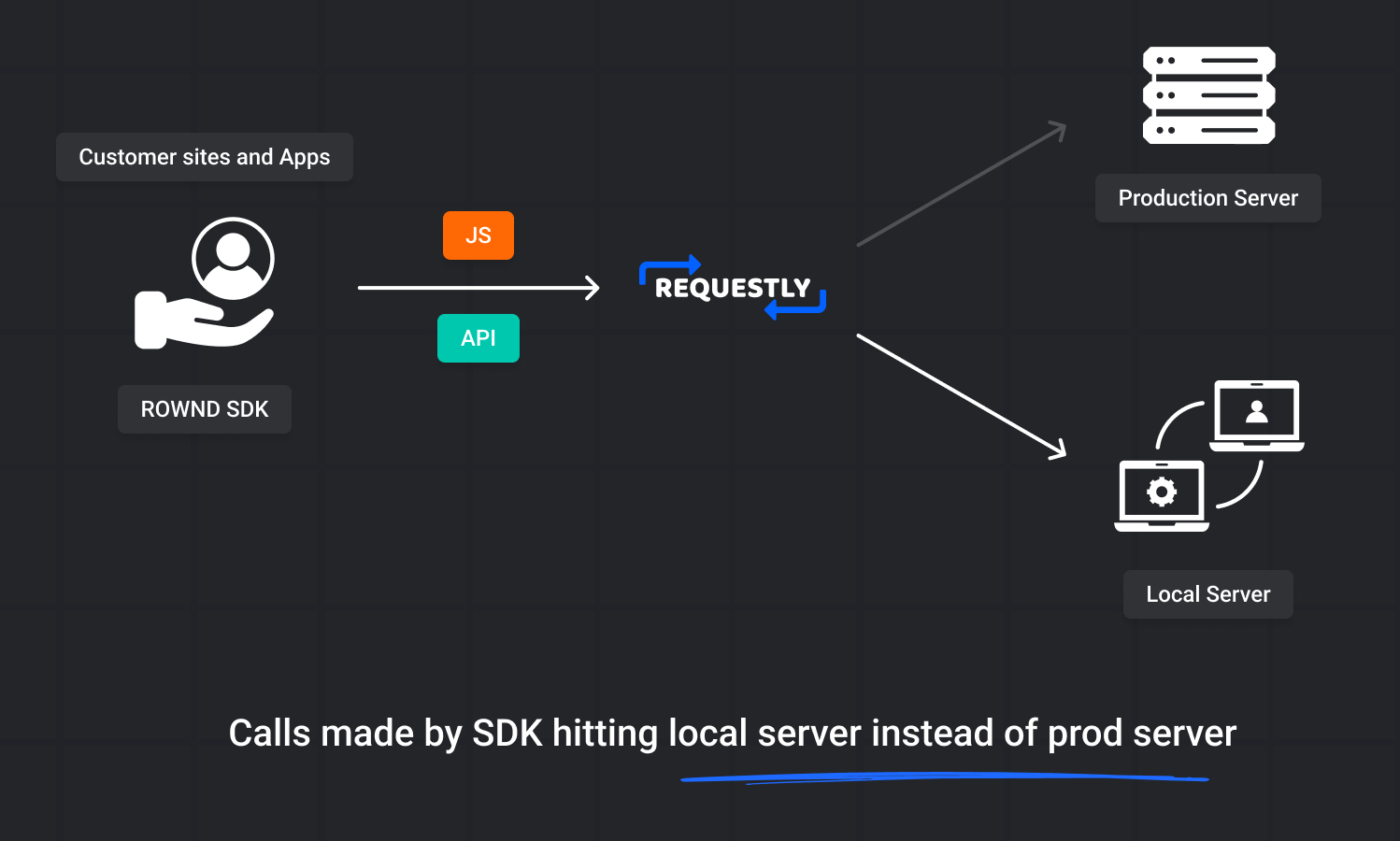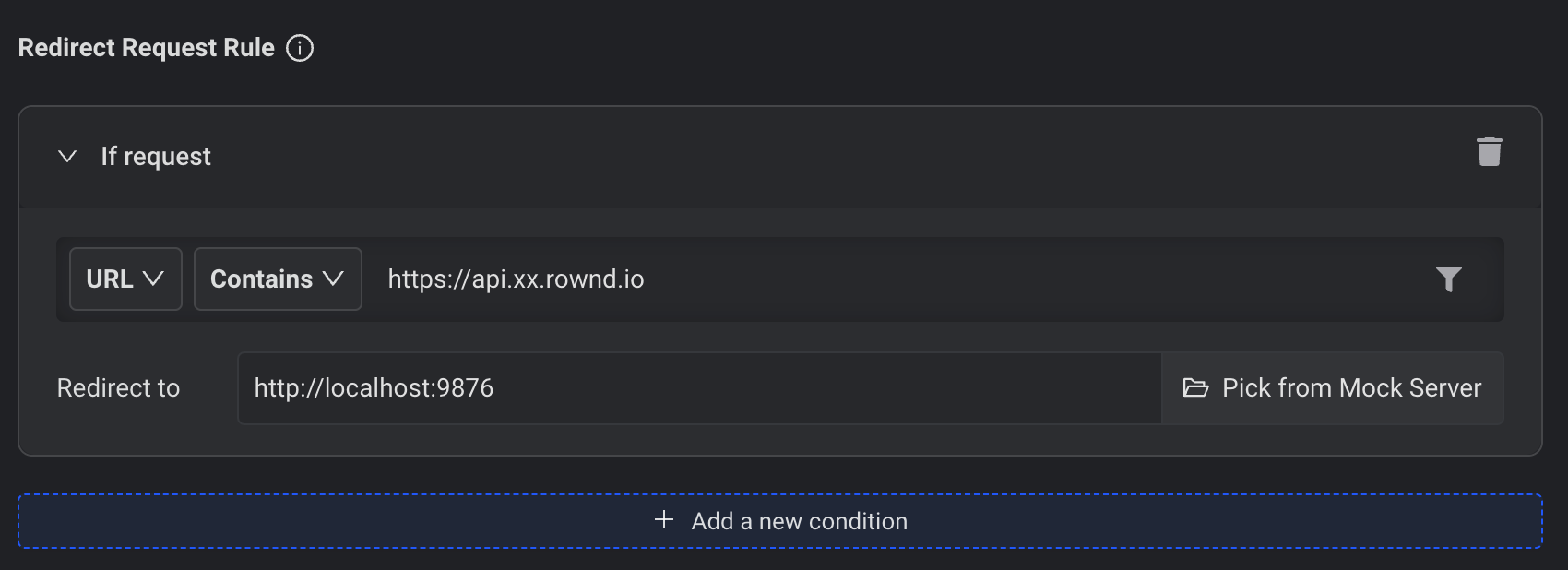Requestly enables Rownd to confidently ship new product updates

Your lightweight Client for API debugging
No Login Required
Requestly is a web proxy that requires a desktop and desktop browser.
Enter your email below to receive the download link. Give it a try next time you’re on your PC!










Rownd offers an adaptive authentication solution for web and mobile applications. Its SDKs and snippets can be integrated across a company’s apps and websites, creating a smooth user experience across all platforms. Additionally, Rownd empowers its customers to strategically place authentication points to optimize growth and minimize drop-offs.
This testimonial is provided by Robert Thelen, Co-founder, and CEO of Rownd (A YCombinator backed company).

Challenge
Rownd is a SaaS offering so the snippets & SDKs are installed on their customers’ apps & websites. Any new changes to the Javascript snippets and APIs have to be thoroughly tested before they can be deployed to the production environment.
The challenge arises when the Rownd development team needs to test the compatibility of new product updates and bug fixes with their customers’ websites. To do this, they need a stable staging environment provided by the customer, however, obtaining access to a staging environment from all customers is practically impossible.
The team initially attempted to use the Chrome DevTools console to run their scripts but encountered timing issues. This resulted in inconsistent performance and the need for multiple test attempts to validate the new changes.

Solution
The Rownd development team stumbled upon Requestly through an organic search and has been utilizing it to switch environments for APIs and JS snippets. This allows them to load their development version of APIs and JS snippets when they access customer websites on their machines.

The Rownd team uses Replace Rule to switch API endpoints from one env to another. This is how their configuration looks like:

Similarly, they also use Replace Rule to switch environments for their JS scripts running on their customer sites.
They also use the Requestly Modify API Response feature to debug issues related to API responses directly on staging & production environments. This helps them avoid setting everything locally and reproducing the issues.
They use the Requestly SharedList feature to collaborate and share Requestly configurations in the team. It is helpful to onboard new employees with Requestly, as the rules are already pre-configured.
Contents
Subscribe for latest updates
Share this article
Related posts
Get started today
Requestly is a web proxy that requires a desktop and desktop browser.
Enter your email below to receive the download link. Give it a try next time you’re on your PC!




















